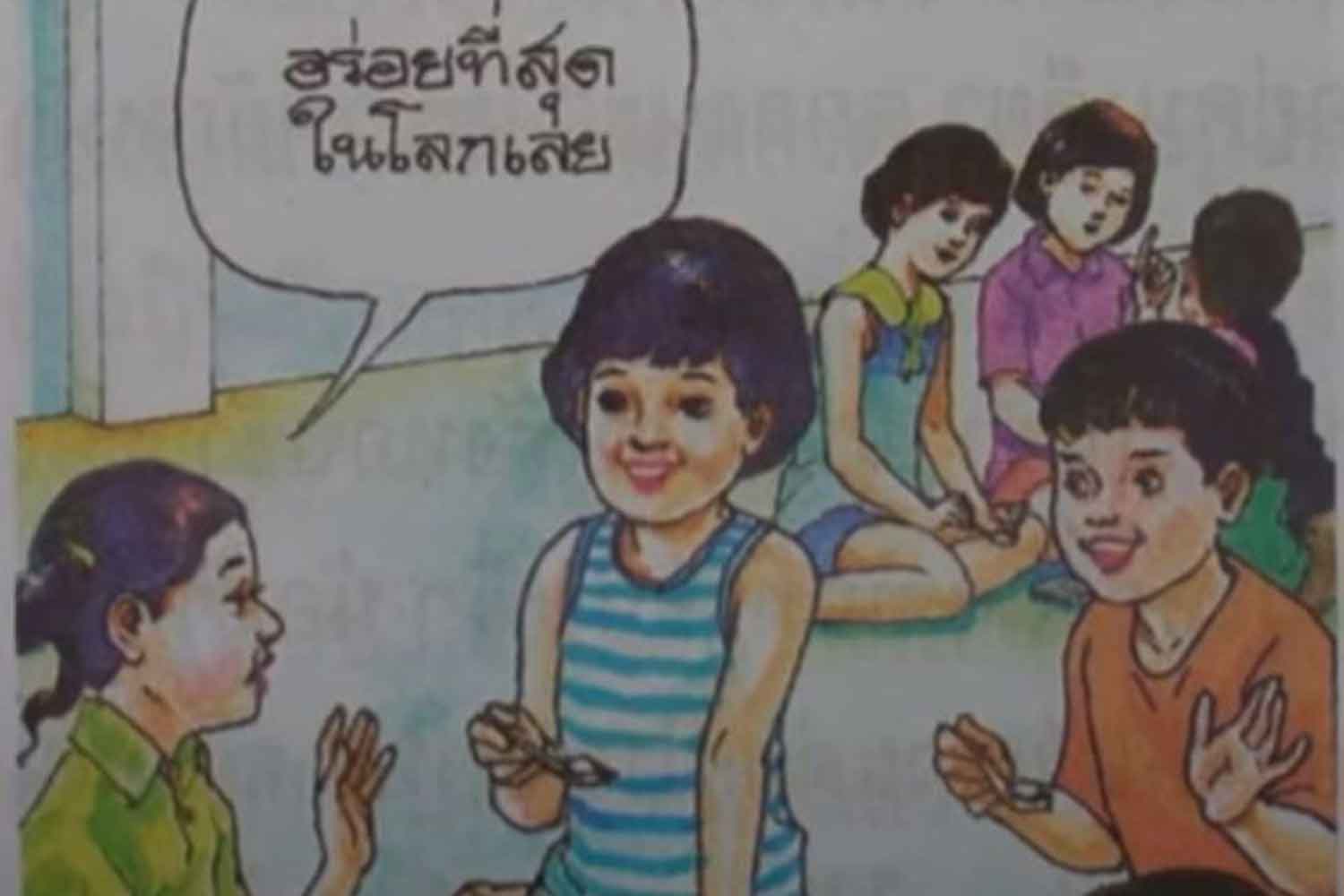
Critics misjudged the content of a Thai-language textbook for grade 5 pupils when they claimed it accepted malnutrition among young children, according to the Office of the Basic Education Commission (Obec).
Obec secretary-general Amporn Pinasa said yesterday the chapter of the Pasa Patee textbook for fifth-graders was its ninth, a story about the value of life.
In the tale, a orphaned schoolgirl learns that her classmate is frustrated with her parents' decision not to buy her a new mobile phone.
The orphan, Khaopoon, takes the friend, Yaibua, to her orphanage where the kids are taught well and live happily albeit frugally. She wants to show her classmate what the lives of those less fortunate are like for a day.
About 20 people at the orphanage share a meal which includes stir-fried water spinach. Everyone is given half a boiled egg to enjoy with a plate of rice and fish sauce. The children eat their meal without complaint and, in the end, Yaibua is overwhelmed with gratitude. She learns how orphaned kids can still find simple happiness in life despite their poverty.
Mr Amporn said the chapter was aimed at teaching children that happiness in life depends on having a happy mind, not material things.
The critics who focused on the poor meals or pointed to any inequality issue misunderstood the objective of the book, he said.
Mr Amporn also said the story about the orphans' meal was fictional and critics should focus on the content in its entirety rather than single details.
Their criticisms led to a negative impact on the credibility of Obec which has a remit to teach students to see the value of life, he said.
In real life, the Education Ministry had a policy to ensure children are well nourished, especially at school, he said.
Mr Amporn said Obec had experts carefully consider the content of Thai language textbooks for pupils before publication.
Those experts were from well-recognised educational institutions and were knowledgeable in Thai language and literature.